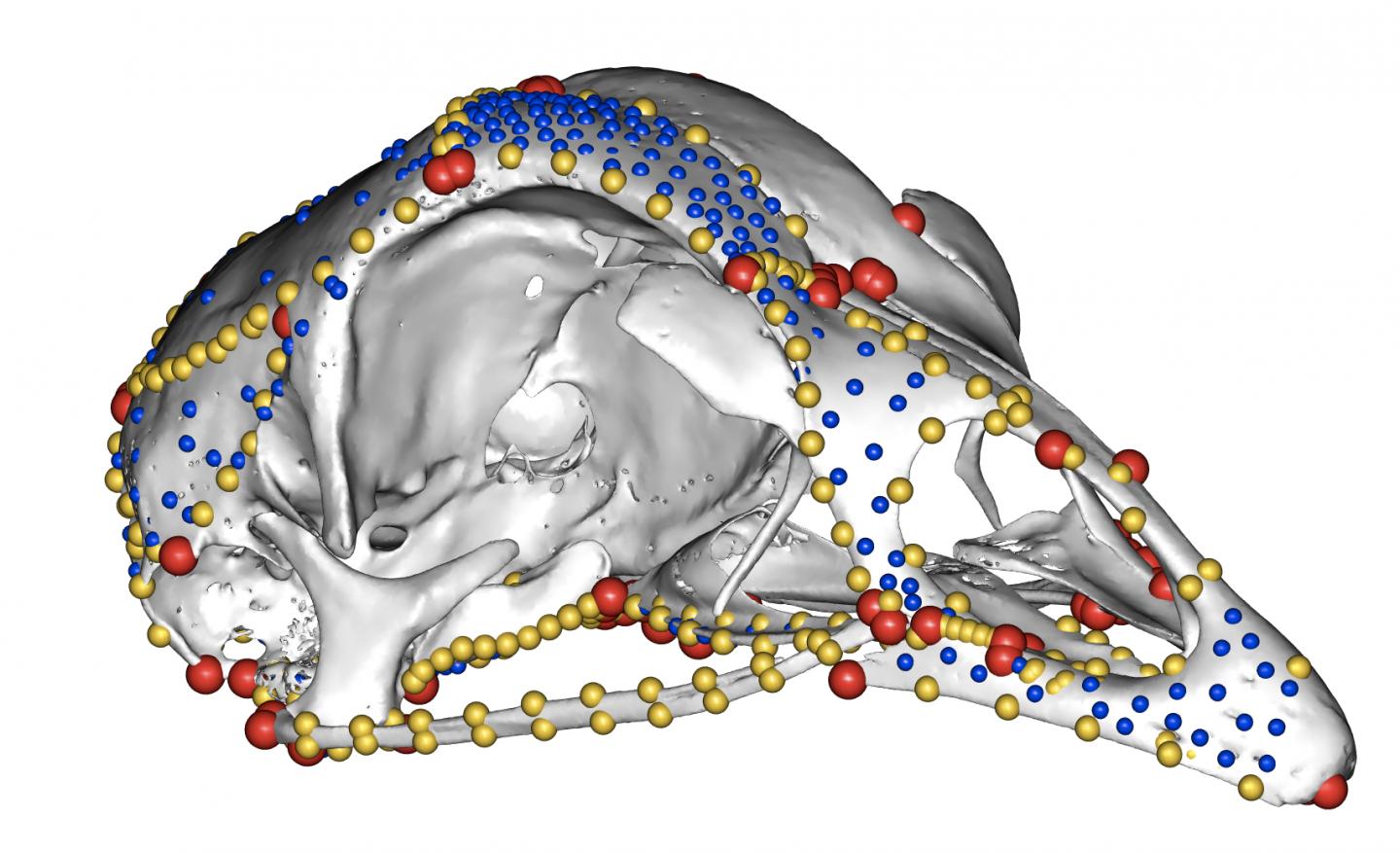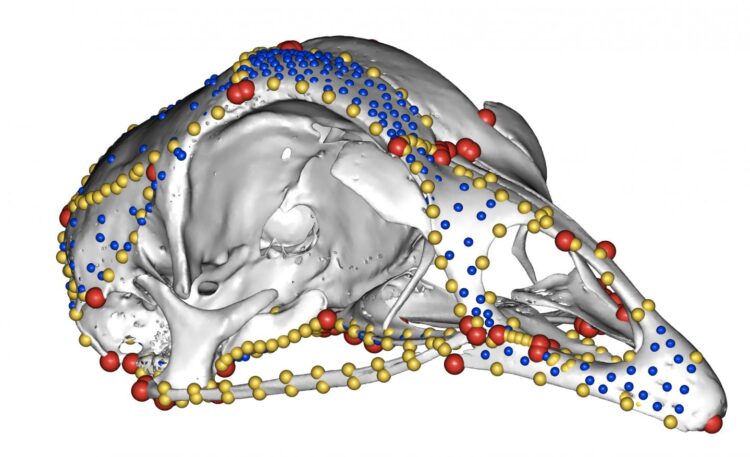Research project aims to improve understanding of cranial birth defects

Credit: Akinobu Watanabe
Old Westbury, NY–Akinobu “Aki” Watanabe, Ph.D., assistant professor of anatomy at New York Institute of Technology College of Osteopathic Medicine (NYITCOM), has secured a prestigious Faculty Early Career Development Program (CAREER) award from the U.S. National Science Foundation (NSF).
Watanabe, a vertebrate paleontologist, is the first New York Institute of Technology faculty member to receive a CAREER award, which is one of the NSF’s most competitive grants. Principal investigators can receive this award once in their career and may only submit a proposal three times. Watanabe’s first submission was selected and is expected to receive a five-year award of $710,855. His research project, “Evo-Developmental Interactions of Craniofacial and Brain Anatomy,” will tackle how the brain and skull interact over millions of years to cause evolutionary structural changes, as well as causes of brain-skull interaction in the days and weeks before birth. Combining traditional and advanced research techniques, the project is the most comprehensive of its kind to investigate brain-skull interaction over these two complementary timescales.
Better understanding of brain-skull interactions may allow clinicians to prevent and treat future neurological and cranial birth defects, which can cause developmental delays, physical disabilities, and even death. In particular, findings may benefit craniosynostosis, a condition where skull joints close prematurely and prevent normal brain growth, and hydrocephalus, a condition where excess cerebrospinal fluid (fluid surrounding the brain and spinal cord) expands brain tissue, leading to skull swelling.
“The brain and skull are intimately linked physically, developmentally, and functionally, and this interaction needs to be clarified for us to gain a holistic understanding of the forces that shape the development and evolution of these structures. I will study these interactions using birds as a model system, but this topic has clinical relevance to serious birth defects in humans,” said Watanabe, who has also lent his expertise to several other NSF-funded studies.
While many studies analyze the brain and skull as independent structures, Watanabe will simultaneously study the evolution and development of both structures and their “tissue-to-tissue” relationship. In two complementary studies, Watanabe will analyze brain-skull interaction in birds, which, like humans, have a large brain capable of higher cognitive functions. In one study, he will use computed tomography (CT) technology, including the micro-CT scanner at NYITCOM’s Center for Biomedical Innovation, and high-density shape modeling to analyze how brain-skull interaction has impacted the evolution of these two structures over millions of years. More than 350 species of birds, ranging from hummingbirds to ostriches, will be analyzed. The other study will pinpoint the mechanisms responsible for brain-skull interactions during early development. Using both traditional and modern techniques, Watanabe will collect samples from live chicken embryos and visualize the interaction between the brain and the skull over their 21-day gestational period.
CAREER program proposals must also include an educational component. In collaboration with NYITCOM’s Center for Biomedical Innovation, he will create a virtual reality game reflecting the project’s research themes, which will serve as an educational tool for students in middle school through college. In a second educational initiative, he will transform the scientific data into music, which will culminate with a public recital, allowing science education to reach wider, more inclusive communities, including the visually impaired and non-scientists.
The NSF is an independent agency of the U.S. government that supports fundamental research and education in all the non-medical fields of science and engineering. Its medical counterpart is the National Institutes of Health. NSF funding accounts for approximately 27 percent of the total federal budget for basic research conducted at U.S. colleges and universities.
This project is funded by NSF CAREER Award ID No. 2045466. The content is solely the responsibility of the authors and does not necessarily represent the official views of the NSF.
###
About New York Institute of Technology
New York Institute of Technology offers 90 undergraduate, graduate, and professional degree programs in more than 50 fields of study, including computer science, data, and cybersecurity; biology and biomedical studies; architecture and design; engineering; health professions and medicine; IT and digital technologies; management; communications and marketing; education and counseling; and energy and sustainability. A nonprofit, independent, private, and nonsectarian institute of higher education, New York Institute of Technology welcomes nearly 8,000 students worldwide. The university has campuses in New York City (Manhattan) and Long Island (Old Westbury), New York; Jonesboro, Arkansas; and Vancouver, British Columbia, as well as programs around the world.
New York Institute of Technology embraces its mission to provide career-oriented professional education, give all qualified students access to opportunity, and support research and scholarship that benefit the larger world. More than 107,000 alumni comprise an engaged network of doers, makers, and innovators prepared to change the world, solve 21st-century challenges, and reinvent the future.
MEDIA CONTACT:
New York Tech Media Relations
[email protected]
Media Contact
Kim Tucker Campo
[email protected]
Original Source
https:/





